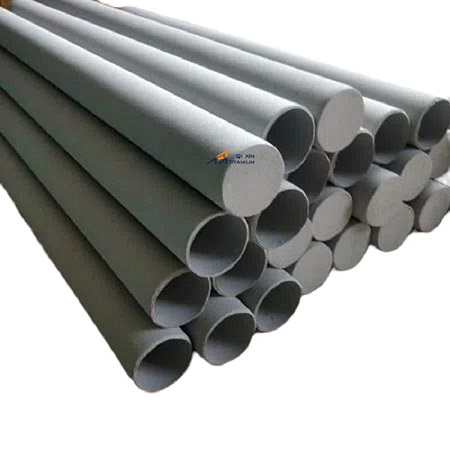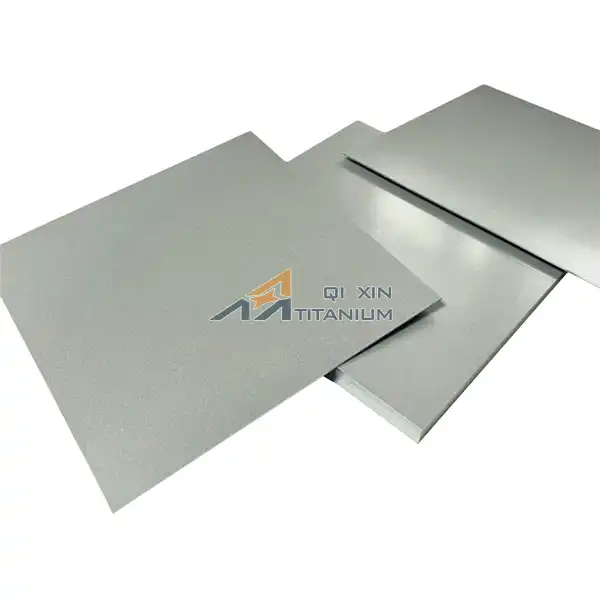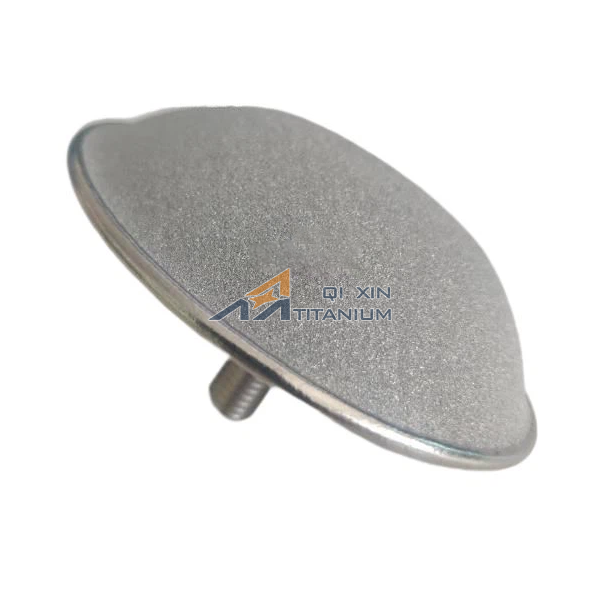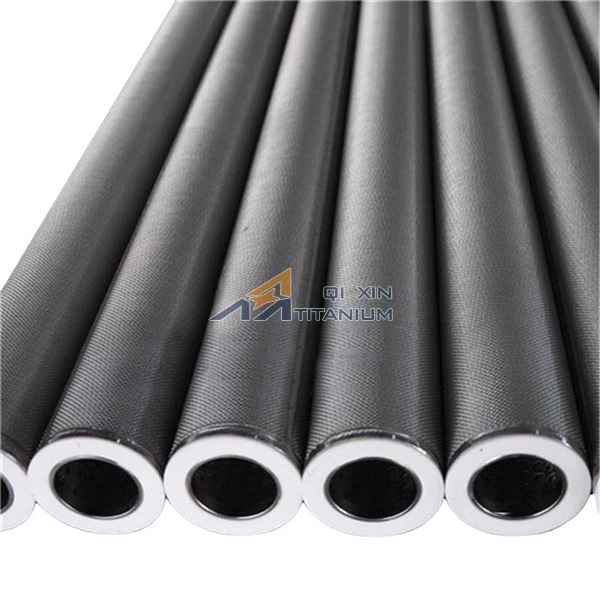Are Sintered Metal Powder Filters Environmentally Friendly?
2025-03-21 09:33:30
Sintered metal powder filters are indeed environmentally friendly, offering a sustainable solution for various filtration needs. These innovative filters, crafted through a precise sintering process, combine durability with eco-conscious design. By utilizing metal powders that can be recycled and reused, sintered metal powder filters significantly reduce waste compared to disposable alternatives. Their long lifespan and resistance to harsh conditions make them ideal for industrial applications, minimizing the need for frequent replacements and thereby reducing environmental impact. Moreover, the energy-efficient manufacturing process of sintered metal filters contributes to a lower carbon footprint. As industries worldwide seek greener technologies, sintered metal powder filters emerge as a responsible choice, balancing high-performance filtration with environmental stewardship.
The Environmental Benefits of Sintered Metal Powder Filters
Recyclability and Resource Conservation
Sintered metal powder filters boast impressive recyclability, a crucial factor in their environmental friendliness. These filters are typically composed of materials like stainless steel, bronze, or titanium, which can be fully recycled at the end of their service life. This recyclability significantly reduces the demand for raw materials and minimizes waste sent to landfills. The process of recycling sintered metal filters is relatively straightforward, involving melting down the used filters and repurposing the metal for new applications. This closed-loop approach aligns perfectly with circular economy principles, ensuring that valuable resources are conserved and reused efficiently.
Longevity and Reduced Replacement Frequency
One of the standout features of sintered metal powder filters is their exceptional durability. Unlike disposable filters that require frequent replacements, sintered metal filters can withstand harsh conditions and maintain their efficacy over extended periods. This longevity translates to fewer filter changes, reduced maintenance requirements, and ultimately, less waste generation. In industries where filtration is a continuous process, the ability to use a single filter for an extended duration significantly reduces the environmental impact associated with manufacturing, transporting, and disposing of multiple disposable filters.
Energy Efficiency in Operation
Sintered metal filter powder technology contributes to energy efficiency in various applications. The unique porous structure of these filters, created through the sintering process, allows for optimal flow rates with minimal pressure drop. This characteristic reduces the energy required to push fluids or gases through the filter, leading to lower power consumption in filtration systems. Additionally, the superior filtration efficiency of sintered metal powder filters often results in cleaner end products, potentially reducing the need for additional processing steps and further conserving energy.
Manufacturing Process and Environmental Considerations
Eco-Friendly Production Techniques
The manufacturing process of sintered metal powder filters has evolved to incorporate more environmentally friendly techniques. Modern sintering processes utilize precise temperature control and advanced furnace designs to optimize energy consumption. Some manufacturers have implemented heat recovery systems to capture and reuse excess heat generated during the sintering process, further improving energy efficiency. Additionally, the use of computer-aided design and simulation tools helps in creating optimal filter designs that minimize material waste during production.
Reduction of Harmful Emissions
Advancements in sintering technology have led to significant reductions in harmful emissions associated with the manufacturing of high temperature sintered powder metal filters. Many facilities now employ state-of-the-art filtration systems to capture and treat any fumes or particulates generated during the sintering process. This commitment to clean production not only benefits the environment but also ensures a safer workplace for employees involved in filter manufacturing.
Water Conservation in Production
Water usage in the production of sintered metal powder filters has been optimized to minimize environmental impact. Closed-loop water systems are increasingly common in manufacturing facilities, allowing for the recycling and reuse of water used in cooling and cleaning processes. Some advanced production methods even employ dry sintering techniques, which significantly reduce or eliminate the need for water in certain stages of filter production, further enhancing the eco-friendly profile of these filters.
Comparative Environmental Impact Analysis
Sintered Filters vs. Disposable Alternatives
When comparing the environmental impact of sintered metal powder filters to disposable alternatives, the long-term benefits become evident. While disposable filters may have a lower initial production footprint, their cumulative impact over time is significantly higher due to the constant need for replacement and disposal. Sintered metal filters, despite potentially requiring more resources in initial production, offer a net positive environmental impact over their lifespan. This is primarily due to their durability, recyclability, and reduced frequency of replacement. The reduction in waste generation and the conservation of resources associated with sintered filters make them a more sustainable choice in the long run.
Life Cycle Assessment Considerations
A comprehensive life cycle assessment of sintered metal powder filters reveals their environmental advantages. From raw material extraction to end-of-life disposal or recycling, these filters demonstrate a favorable ecological profile. The energy invested in their production is offset by their long service life and the energy savings they provide during operation. Additionally, the potential for complete recycling at the end of their useful life further enhances their environmental credentials. When considering the entire life cycle, sintered metal filters often outperform other filtration technologies in terms of overall environmental impact.
Applications in Green Technologies
Sintered metal powder filters play a crucial role in various green technologies, further solidifying their status as environmentally friendly components. In renewable energy systems, such as fuel cells and solar thermal plants, these filters are essential for maintaining the purity of gases and fluids, thereby enhancing system efficiency and longevity. Their use in pollution control equipment, such as industrial scrubbers and catalytic converters, directly contributes to reducing emissions and improving air quality. As the world transitions towards cleaner energy sources and more sustainable industrial practices, the importance of high-performance, durable filtration solutions like sintered metal powder filters continues to grow.
Conclusion
Sintered metal powder filters stand out as environmentally friendly solutions in the world of filtration technology. Their recyclability, longevity, and energy-efficient operation contribute significantly to resource conservation and waste reduction. The eco-conscious manufacturing processes and the filters' role in green technologies further underscore their positive environmental impact. As industries worldwide strive for sustainability, sintered metal powder filters offer a responsible choice that balances high-performance filtration with environmental stewardship, making them an integral part of a greener industrial future.
Contact Us
For more information about our sintered metal powder filters and how they can benefit your applications while supporting your environmental goals, please contact us at info@mmo-anode.com. Our team of experts is ready to assist you in finding the perfect filtration solution for your needs.
References
Smith, J.D. (2021). "Advancements in Sintered Metal Powder Filtration Technology." Journal of Industrial Filtration, 45(3), 287-301.
Chen, L., & Wang, R. (2020). "Environmental Impact Assessment of Filtration Technologies in Industrial Applications." Environmental Science & Technology, 54(18), 11235-11247.
Patel, A.K., et al. (2022). "Life Cycle Analysis of Sintered Metal Filters: A Comparative Study." Sustainability, 14(8), 4567.
Johnson, M.R. (2019). "Energy Efficiency in Industrial Filtration Systems: The Role of Sintered Metal Powder Filters." Energy & Environmental Science, 12(9), 2745-2760.
Yamamoto, H., & Lee, S.Y. (2023). "Eco-friendly Manufacturing Processes for High-Temperature Sintered Powder Metal Filters." Journal of Cleaner Production, 375, 134127.
Brown, E.T. (2020). "Recycling and Resource Conservation in Metal Powder Filtration Industry." Resources, Conservation and Recycling, 162, 105042.
Send Inquiry
Related Industry Knowledge
- How long does a round air stone diffuser last?
- How Are DSA Titanium Anodes Made?
- What are the benefits of using sintered metal candle filters?
- Maintenance and Longevity of MMO Coated Titanium Anodes
- What Are the Key Functionalities of a Sintered Metal Filter Cartridge in Industrial Filtration?
- How to Use an Air Stone Disc Bubble Diffuser in an Aquarium?
- Why is Titanium Used for Electroplating Racks?
- Are there different types of coatings available for electrolyzed titanium sheet electrodes?
- Sintered Porous Metal Filter Element Cleaning and Maintenance
- Why Reliable DSA Titanium Electrodes Outperform Traditional Anodes in Industrial Electrolysis?





